Straight after Christmas the Church celebrates a whole string of saints – mostly a tale of difficulty, disaster and death. I have never celebrated them day by day, but this year seems an excellent time to start. So here goes:
Saturday 26th Boxing Day St Stephen
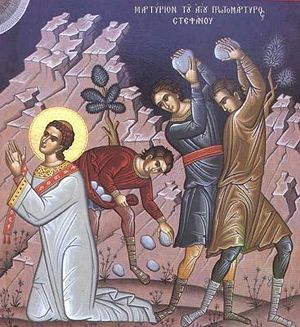
Straight after Christmas Day we celebrate the first Christian martyr, Stephen. He was a Jew who grew up outside Palestine. Did he join the church in the great baptism at Pentecost? Perhaps. Anyway, we are told that he was a man ‘full of faith and the Holy Spirit’. Along with six other Greek-speaking Jews he was given the job of making sure that, in the daily distribution of food to the community’s widows, the Greek-speaking widows were not left out. (Acts 6) He got in trouble with a community of North African Jews by talking about Jesus as the Messiah. He was arrested and brought before the Sanhedrin. (Luke takes this opportunity to give his Gentile readership a quick resume of Israel’s history). When Stephen affirmed that Jesus was more important than the Temple, they stoned him to death for blasphemy. At the very end, ‘he cried out in a loud voice, “Lord, do not hold this sin against them” When he had said this, he fell asleep.’ Read the whole story in Acts 6 – 7.
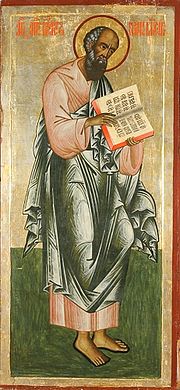
Sunday 27th St John the Evangelist
A problem. Who was he? Was he the Galilean fisherman John son of Zebedee (or Ya’akov bar Zvadai)? Or was he, as Richard Baukham of Cambridge argues, a Jerusalem disciple also called John? I think the latter, and this theory is what I have used in my forthcoming book “The Troublemaker”. Whoever it was, his gospel brings us face to face with the powerful personality of Jesus (or Yeshua). As he writes, ‘These things are written so that you may come to believe that Jesus is the Messiah, the Son of God, and that through believing you may have life in his name.’ (John 20.31 NRSV)
Monday 28th Holy Innocents
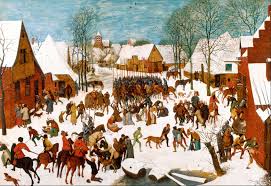
This is a desperately sad day. The story comes in Matthew 2. After the wise men had been to see Jesus, the psychotic king Herod tried to get rid of this potentially dangerous baby by killing all baby boys under two years old in and around Bethlehem. Joseph, Mary and Jesus escaped to Egypt. It is a terrible story, but quite in keeping with Herod’s character, who killed three of his own sons as well as his much loved wife Mariamne. A day to reflect on the tragedies of this world: Syria, Yemen, Lebanon, Zimbabwe, Cambodia, Rwanda, Armenians, the Holocaust etc.etc. The gospel has this quote from Jeremiah:
‘A voice was heard in Ramah, wailing and loud lamentation, Rachel weeping for her children;she refused to be consoled, because they are no more.’
Tuesday 29th Thomas a Becket 1118 – 1170
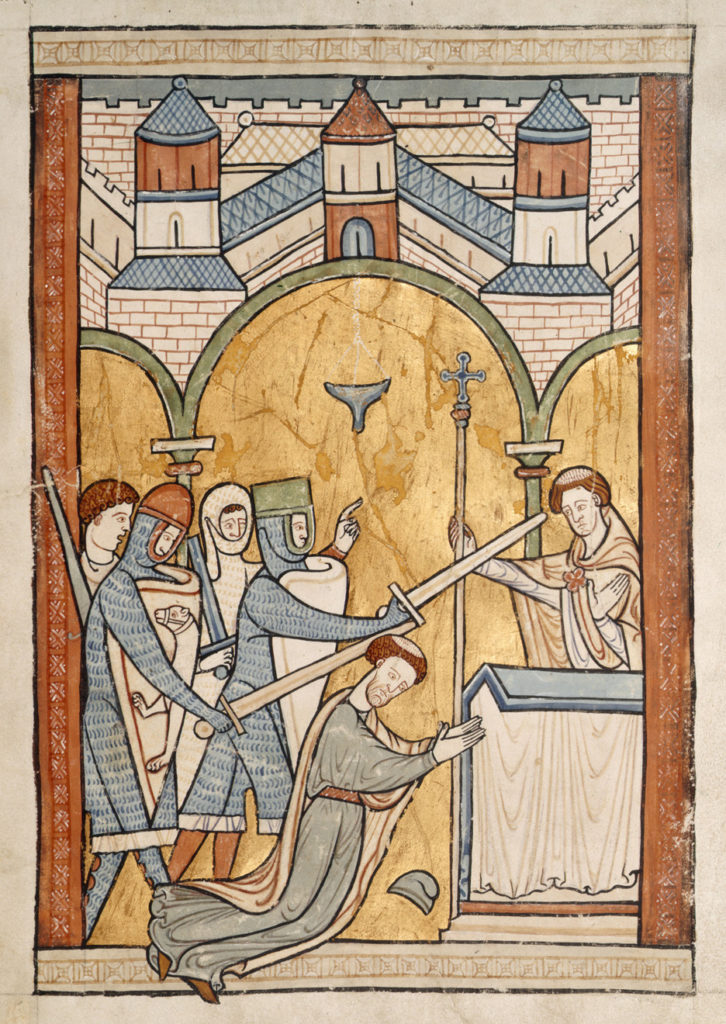
A former friend of Henry II, Thomas Becket changed when he was made Archbishop of Canterbury. He defended clergy against Henry’s attempt to get equal justice for all. As one contemporary put it, “The bishops were more intent upon defending the rights and liberties of the clergy than in correcting and restraining their vices.” Following one of the king’s rages, four knights came to the cathedral. Thomas refused to bar the doors and spoke calmly and resolutely to the knights. At last by the cathedral’s north transept they struck his head three times with their swords, splitting his skull. Earlier he had said, “By suffering rather than by fighting shall we triumph over the enemy; for we are come to suffer, not to resist.” Was he right to die so that the Church could be immune from the normal laws of society?
Wednesday 30th

On this day the Union of Soviet Socialist Republics (USSR) was formally proclaimed in 1922. It consisted of Russia, Ukraine, Belorussia and Transcaucasus. It lasted till 26th December 1991. Seventy years of persecution of the Church.
Thursday 31st New Year’s Eve John Wycliffe 1320 – 1385
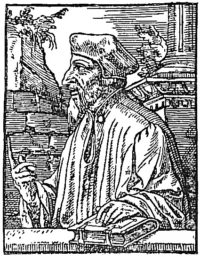
Wycliffe was a don at Merton College, Oxford (my college) and Master of Balliol. He was fiercely against monks, translated the Bible into English and eventually denied the doctrine of transubstantiation (of bread and wine turning into the body and blood of Christ). He died in disgrace but safely in Lutterworth. Thirty years after his death the Council of Constance condemned him. His body was exhumed and burnt and his ashes cast into the River Swift. He has been called the morning star of the Reformation. Over 1500 manuscript copies of his English Bible have been found. His followers were called ‘Lollards’. They insisted on reading the Bible in English, held holy communion to be merely a memorial and were savagely persecuted right up to the Reformation.
I studied Wycliffe at university and he struck me as a bitter, resentful man, adept at holding grudges. I read a passage in Wycliffe’ translation of Luke 7.22, in which Jesus says “Tell John what ye have seen. The blinded seen, the lame walk, measles (i.e. lepers) be made clean, the dead be raised, and the poore hear the gospel and ben made keepers of the gospel.’ Note: The last phrase was Wycliffe’s invention. Beware of translators!
Friday 1st January New Years Day:
The Circumcision of Christ (Book of Common Prayer 1552)
HOW ANTI-SEMITIC IS THE CHURCH?
It is said that an elderly lady in Russia approached her priest with a question:
“Father, I am confused. Was our Lord Jesus Jewish?” “Ah my dear,” the priest answered, “Our Lord is far too great a person to be limited or categorised according to any of our human labels. He is universal.” “I see,” said the lady. “And the Blessed Virgin Mary, was she Jewish?” “Unfortunately, yes.”
It seems to me that this absolutely nails the average Christian attitude to Jews, as well as to the Jewishness of Jesus. Christians almost by definition believe they are spiritually more advanced than Jews. So we try to forget the famous quote by the missionary doctor and theologian Albert Schweizer, “Jesus was not a Christian. He was a Jew.”
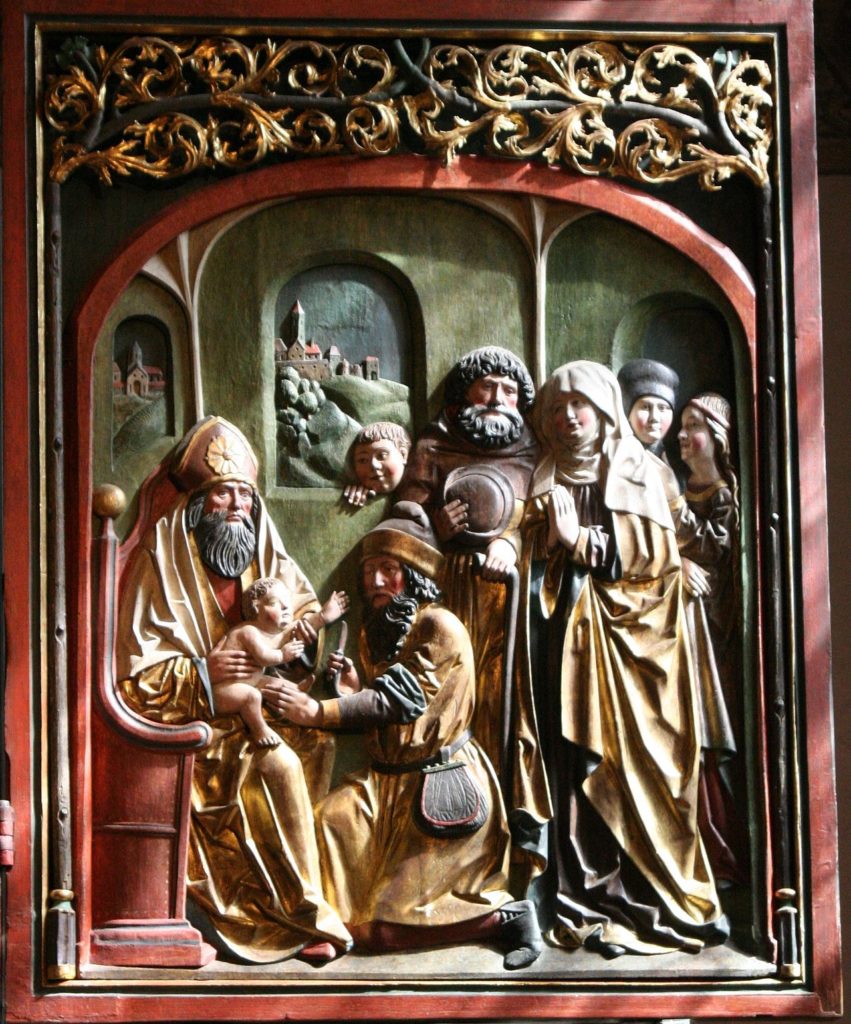
New Year’s Day is a good test case. Back in 1552 it was called ‘The Circumcision of Christ’ following the practice in Rome since about 1300. This is because of part of the Christmas story by Luke which is rarely used: ‘After eight days had passed, it was time to circumcise the child; and he was called Jesus, the name given by the angel before he was conceived in the womb.’ (Luke 2.21)
In other words Jesus was fully Jewish from his earliest days, and had the mark of circumcision.
But in 1980 the Alternative Service Book in England renamed the feast as ‘The Naming of Jesus.’ In 2000 Common Worship made a good Anglican compromise: ‘the Feast of the Circumcision and Naming of Jesus’.
Meanwhile, the Roman Catholic Church removed any mention of the circumcision in 1960. Its feast day on 1st January is now the feast of Mary the Mother of God.
My forthcoming book, “The Troublemaker” places Jesus firmly at the heart of Jewish life and worship. It will come out on Amazon in time for Holy Week at the end of March.
A PRAYER
Here is the Collect (or summary prayer) for the Circumcision of Christ from the 1552 Book of Common Prayer. The language iso old-fashioned, but the ideas are quite muscular!
Almighty God, who madest thy blessed Son to be circumcised and obedient to the law for man; Grant us the true circumcision of the Spirit; that our hearts, and all our members, being mortified from all worldly and carnal lusts, we may in all things obey thy blessed will; through the same thy Son Jesus Christ our Lord. Amen.
